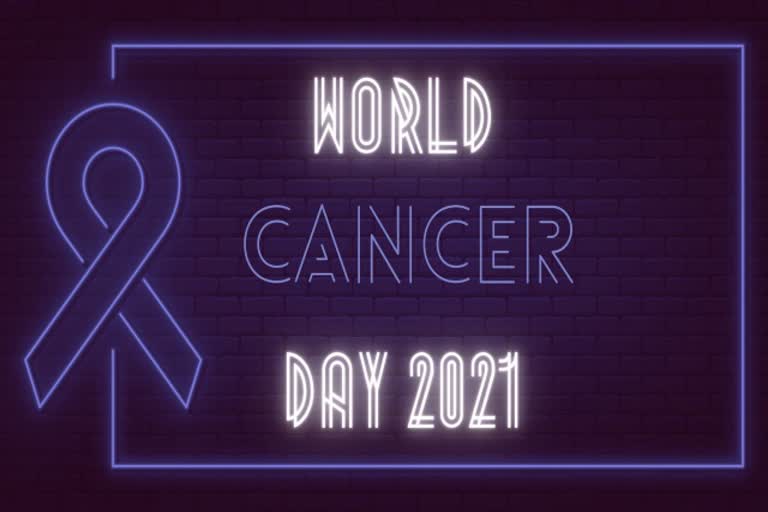Along with a dramatic rise in the number of cancer patients over time, cancer has become the second leading cause of global deaths, “and is responsible for an estimated 9.6 million deaths in 2018. Globally, about 1 in 6 deaths is due to cancer,” states the World Health Organization (WHO) the most common ones as its further states are:
- Lung (2.09 million cases)
- Breast (2.09 million cases)
- Colorectal (1.80 million cases)
- Prostate (1.28 million cases)
- Skin cancer (non-melanoma) (1.04 million cases)
- Stomach (1.03 million cases)
Every year on 4th February, World Cancer Day is observed to raise awareness and to educate people about it. It also tried to bring everyone across the globe together to fight against the fatal disease. Cancer, as defined by the Centres for Disease Control and Prevention (CDC), refers to diseases in which abnormal cells divide out of control and are able to invade other tissues. Cancer cells can spread to other parts of the body through the blood and lymph systems, which help the body get rid of toxins.
However, almost everyone knows about what cancer is, but what they don’t know are some facts related to cancer. Therefore, today on World Cancer Day, we are going to debunk some of the most common myths and give you the actual facts for the same.
- Cancer is contagious!
Most cancers are not contagious, however, some cancers caused by viruses or bacteria can spread from one person to another. According to the Indian Journal of Medical Research (IJMR), “Apart from cervical cancer (caused by human papillomavirus) and liver cancer (caused by hepatitis B and C virus), none of the other forms of cancer are contagious. Blood transfusion shared needles, and unprotected sex are the common modes responsible for the spread of these cancers” - Cancer is always fatal
No. Cancer is not always fatal. With the advancement in the field of medicine and technology, there are several treatments available. Therefore, the survival rates post-cancer treatment are now higher. But it is important to understand that these rates i.e. how long an individual will live or whether they will lose their lives depends upon what pace the cancer is growing in the body, how much cancer has already spread in the body if effective treatments are available, or not, the person’s overall health, etc. - Antiperspirants and deodorants cause breast cancer
According to the National Cancer Institute, the best studies so far have found no evidence linking the chemicals typically found in antiperspirants and deodorants with changes in breast tissue. - Only smokers can have lung cancer
Smoking definitely increases the risk of lung cancer in people, but non-smokers too can be at a risk. Heavy exposure to asbestos, radon, uranium, arsenic, genetic predisposition, passive smoking, and lung scarring from any prior illness can all lead to lung cancer, states IJMR. - Can sugar make cancer worse?
No. The National Cancer Institute states that, although research has shown that cancer cells consume more sugar (glucose) than normal cells, no studies have shown that eating sugar will make your cancer worse or that, if you stop eating sugar, your cancer will shrink or disappear. However, a high-sugar diet may contribute to excess weight gain, and obesity is associated with an increased risk of developing several types of cancer. - Men cannot have breast cancer
False. Since men too have breast tissues, which is why they too can develop breast cancer. Although the cases of breast cancer in men are very low, they are still at risk of it. - Positivity can cure cancer
Having a positive attitude is very much required during any treatment, but it solely cannot treat cancer. Proper medication and therapies are of extreme importance in cancer patients. - Nausea, pain, and sickness follow cancer treatment
IJMR explains that individual variation exists regarding response to a particular treatment regimen. Recent advancements with antiemetics have made it possible to reduce the side effects like nausea and sickness. Pain-relieving medications and exercises provide a better quality of life to the patients.
Therefore, there are many more such myths and even taboos, which need to be eradicated from society, and people should be sensitized about cancer with actual facts only. Misleading people and scaring them with rumors cannot be justified and it can also worsen their health due to overthinking, negativity and cause anxiety as well. Thus, we must all pledge to stand with facts only and come together to fight this catastrophic disease.



